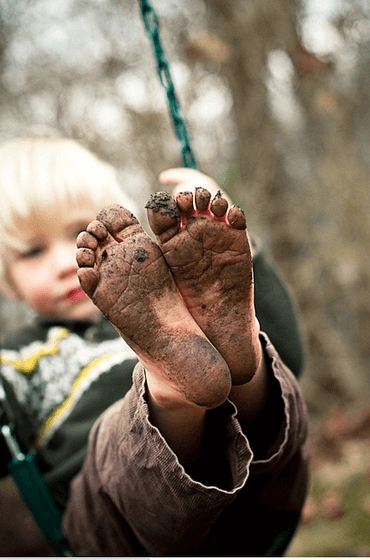1
OR il Signore parlò a Mosè e ad Aaronne nel paese di Egitto, dicendo:
2
Questo mese vi sarà il principio de’ mesi; egli vi sarà il primo dei mesi dell’anno.
3
Parlate a tutta la raunanza d’Israele, dicendo; Nel decimo giorno di questo mese, ciascuna casa di padre di famiglia prenda un agnello o un capretto; uno per casa.
4
Ma se la famiglia è minore che non conviene per mangiar quell’agnello o capretto, prendalo il padre della famiglia in compagnia del suo vicino, il più prossimo di casa sua, con un certo numero di persone, il quale voi conterete, facendo ragione su l’agnello o il capretto, secondo che ciascuno può mangiare.
5
Prendete quell’agnello o quel capretto, senza difetto, maschio, di un anno, d’infra le pecore, o d’infra le capre.
6
E tenetelo in guardia fino al quartodecimo giorno di questo mese; e allora tutta la raunanza della comunanza d’Israele lo scanni fra i due vespri.
7
E prendasene del sangue, e mettasene sopra i due stipiti, e sopra il limitar di sopra della porta, nelle case nelle quali si mangerà.
8
E mangisene quella stessa notte la carne arrostita al fuoco, con pani azzimi, e lattughe salvatiche.
9
Non mangiate nulla di esso crudo, o pur lesso nell’acqua; ma arrostito al fuoco, capo, gambe e interiora.
10
E non ne lasciate nulla di resto fino alla mattina; e ciò che sarà restato fino alla mattina, bruciatelo col fuoco.
11
Or mangiatelo in questa maniera: abbiate i lombi cinti, e i vostri calzamenti ne’ piedi, e il vostro bastone in mano, e mangiatelo in fretta. Esso è il Passaggio del Signore.
12
E quella notte io passerò per lo paese di Egitto, e percuoterò ogni primogenito nel paese di Egitto, così d’uomini come di animali; e farò ancora giudicii sopra tutti gl’iddii di Egitto. Io sono il Signore.
13
E quel sangue vi sarà per un segnale, nelle case nelle quali sarete; e quando io vedrò quel sangue, passerò oltre senza toccarvi; e non vi sarà fra voi alcuna piaga a distruzione, mentre io percuoterò il paese di Egitto.
14
E quel giorno vi sarà per una ricordanza, e voi lo celebrerete per festa solenne, al Signore; voi lo celebrerete per festa solenne, per istatuto perpetuo, per le vostre età.
15
Voi mangerete per sette giorni pani azzimi; anzi fin dal primo giorno farete che non vi sia alcun lievito nelle vostre case; perciocchè, se alcuno mangia cosa alcuna lievitata dal primo giorno fino al settimo, quella persona sarà ricisa d’Israele.
16
E nel primo giorno voi avrete santa raunanza; siavi parimente santa raunanza nel settimo giorno; non facciasi alcun’opera in que’ giorni; solo vi si apparecchi quel che ciascuna persona deve mangiare e non altro.
17
Osservate adunque l’osservanza de’ pani azzimi; perciocchè in quel giorno stesso io avrò tratte le vostre schiere fuor del paese di Egitto; perciò osservate quel giorno per le vostre età, per istatuto perpetuo.
18
Mangiate pani azzimi, dal quartodecimo giorno del primo mese al vespro, fino al ventunesimo giorno di esso mese al vespro.
19
Non trovisi alcun lievito nelle vostre case per sette giorni; perciocchè, se alcuno mangia cosa alcuna lievitata, quella persona sarà ricisa dalla raunanza d’Israele; forestiere, o natio del paese, ch’egli si sia.
20
Non mangiate nulla di lievitato; mangiate pani azzimi in tutte le vostre stanze.
21
Mosè adunque chiamò tutti gli Anziani d’Israele, e disse loro: Traete fuori, e prendetevi un agnello, o un capretto, per ciascuna delle vostre famiglie, e scannate la Pasqua.
22
Pigliate eziandio un mazzuol d’isopo, e intignetelo nel sangue che sarà nel bacino; e spruzzate di quel sangue che sarà nel bacino il limitar disopra, e i due stipiti delle porte; e non esca alcun di voi fuor dell’uscio della sua casa fino alla mattina.
23
E quando il Signore passerà per percuoter gli Egizj, egli vedrà il sangue sopra il limitare, e sopra i due stipiti; e trapasserà oltre alla porta, e non permetterà al distruttore di entrar nelle vostre case per percuotere.
24
Voi dunque osservate questa cosa, come uno statuto imposto a te e a’ tuoi figliuoli, in perpetuo.
25
E quando voi sarete entrati nel paese che il Signore vi darà, come egli ne ha parlato, osservate questo servigio.
26
E quando i vostri figliuoli vi diranno: Che vuol dire questo servigio che voi fate? dite:
27
Quest’è il sacrificio della Pasqua del Signore, il quale trapassò oltre alle case de’ figliuoli d’Israele in Egitto, quando egli percosse gli Egizj, e salvò le nostre case.
28
E il popolo s’inchinò e adorò. E i figliuoli d’Israele andarono, e fecero interamente come il Signore avea comandato a Mosè e ad Aaronne.
29
E ALLA mezza notte il Signore percosse tutti i primogeniti nel paese di Egitto, dal primogenito di Faraone, che sedeva sopra il suo trono, fino al primogenito del prigione che era nella carcere; ed anche tutti i primogeniti degli animali.
30
E Faraone si levò di notte, egli, e tutti i suoi servitori, e tutti gli Egizj; e vi fu un gran grido in Egitto; perciocchè non vi era alcuna casa ove non fosse un morto.
31
E Faraone chiamò Mosè ed Aaronne, di notte, e disse: Levatevi, partitevi di mezzo il mio popolo, voi, e i figliuoli d’Israele; e andate, servite al Signore, secondo che avete detto.
32
Pigliate le vostre gregge e i vostri armenti, come avete detto; e andatevene, ed anche beneditemi.
33
E gli Egizj sollecitavano instantemente il popolo, affrettandosi di mandarlo via dal paese; perciocchè dicevano: Noi siam tutti morti.
34
E il popolo tolse la sua pasta, avanti che fosse lievitata, avendo le sue madie involte ne’ suoi vestimenti, in su le spalle.
35
Or i figliuoli d’Israele aveano fatto secondo la parola di Mosè: e aveano chiesto agli Egizj vasellamenti di argento, e vasellamenti d’oro, e vestimenti.
36
E il Signore avea reso grazioso il popolo agli Egizj, onde essi gli aveano prestate quelle cose. Così, spogliarono gli Egizj.
37
E i figliuoli d’Israele si partirono di Rameses, e pervennero a Succot, essendo intorno a seicentomila uomini a piè, oltre alle famiglie.
38
Una gran turba ancora di gente mescolata salì con loro; e grandissimo numero di bestiame, minuto e grosso.
39
Ed essi cossero la pasta che aveano portata fuor di Egitto, in focacce azzime; conciossiachè non fosse lievitata; perciocchè, essendo scacciati dagli Egizj, non si erano potuti indugiare, ed anche non si aveano apparecchiata alcuna vivanda.
40
Or la dimora che i figliuoli d’Israele fecero in Egitto fu di quattrocentrenta anni.
41
E al termine di quattrocentrenta anni, lo stesso giorno che quelli finivano, avvenne che tutte le schiere del Signore uscirono fuor del paese di Egitto.
42
Quest’è la notte dell’osservanze, consecrata al Signore, quando egli trasse fuor del paese di Egitto i figliuoli d’Israele; quest’è la notte consecrata al Signore, che si deve celebrare con ogni osservanza da tutti i figliuoli d’Israele, per le loro età.
43
E IL Signore disse a Mosè e ad Aaronne: Quest’è lo statuto della Pasqua. Niun forestiere ne mangi.
44
Ma qualunque servo di chi che sia comperato con danari, dopo che tu l’avrai circonciso, ne mangerà.
45
L’avveniticcio e il mercenario non ne mangino.
46
Mangisi in una stessa casa; non portar fuor di casa della carne di essa, e non ne rompete alcun osso.
47
Facciala tutta la raunanza d’Israele.
48
E quando un forestiere dimorerà teco, e vorrà far la Pasqua del Signore, circoncidasi prima ogni maschio di casa sua; e allora accostisi per farla, e sia come colui ch’è natio del paese; ma niuno incirconciso ne mangi.
49
Siavi una stessa legge per colui ch’è natio del paese, e per lo forestiere che dimora per mezzo di voi.
50
E tutti i figliuoli d’Israele fecero interamente come il Signore avea comandato a Mosè e ad Aaronne.
51
E in quello stesso giorno avvenne che il Signore trasse fuor del paese di Egitto i figliuoli d’Israele, per le loro schiere.








